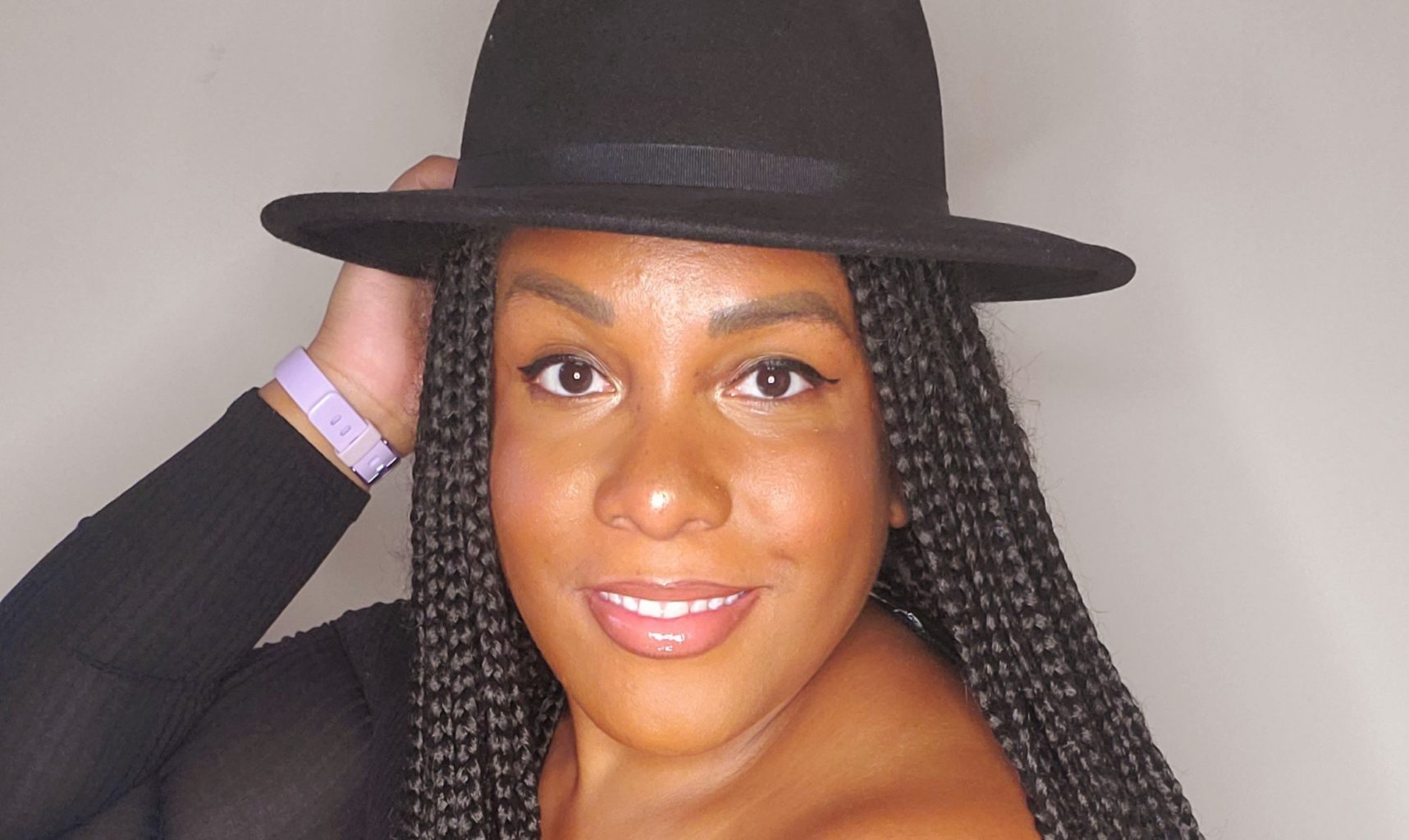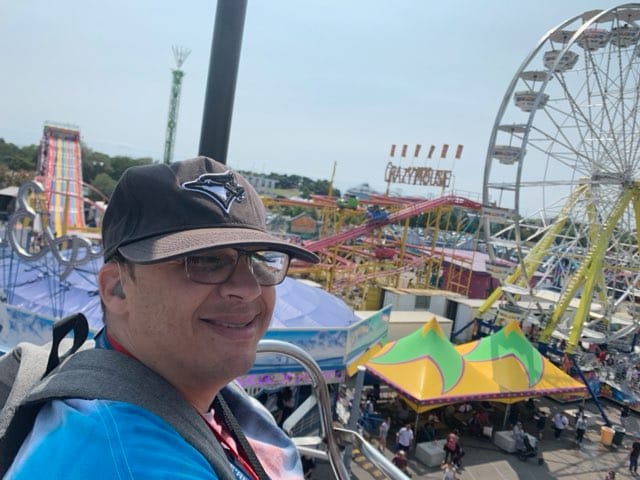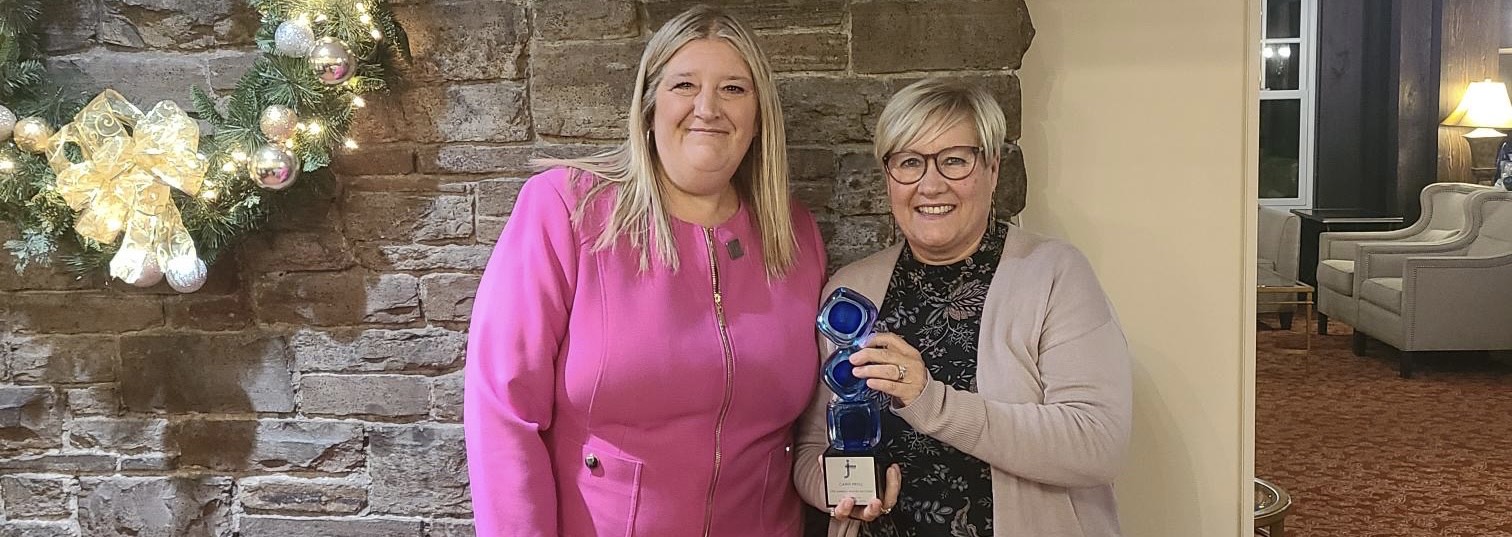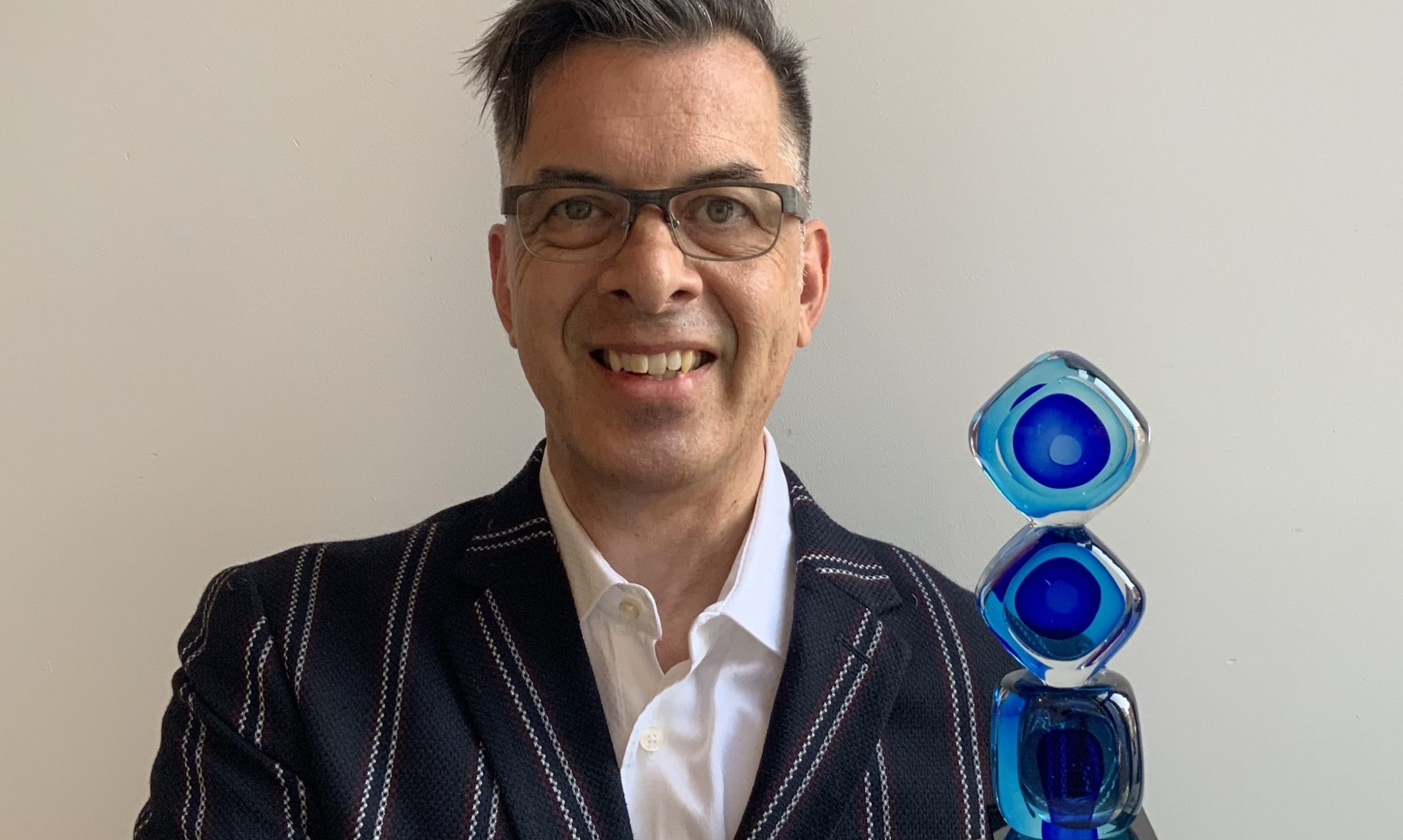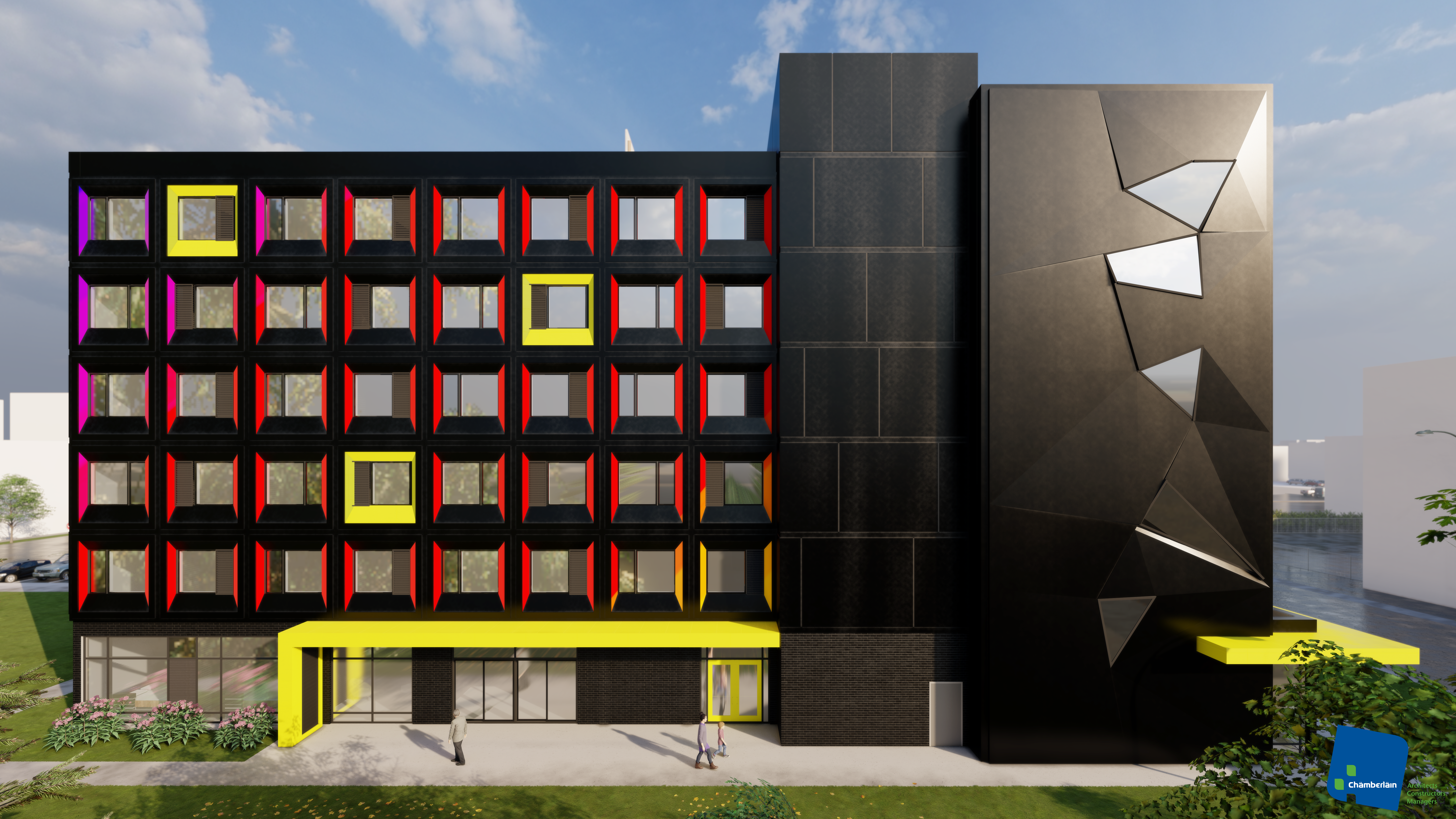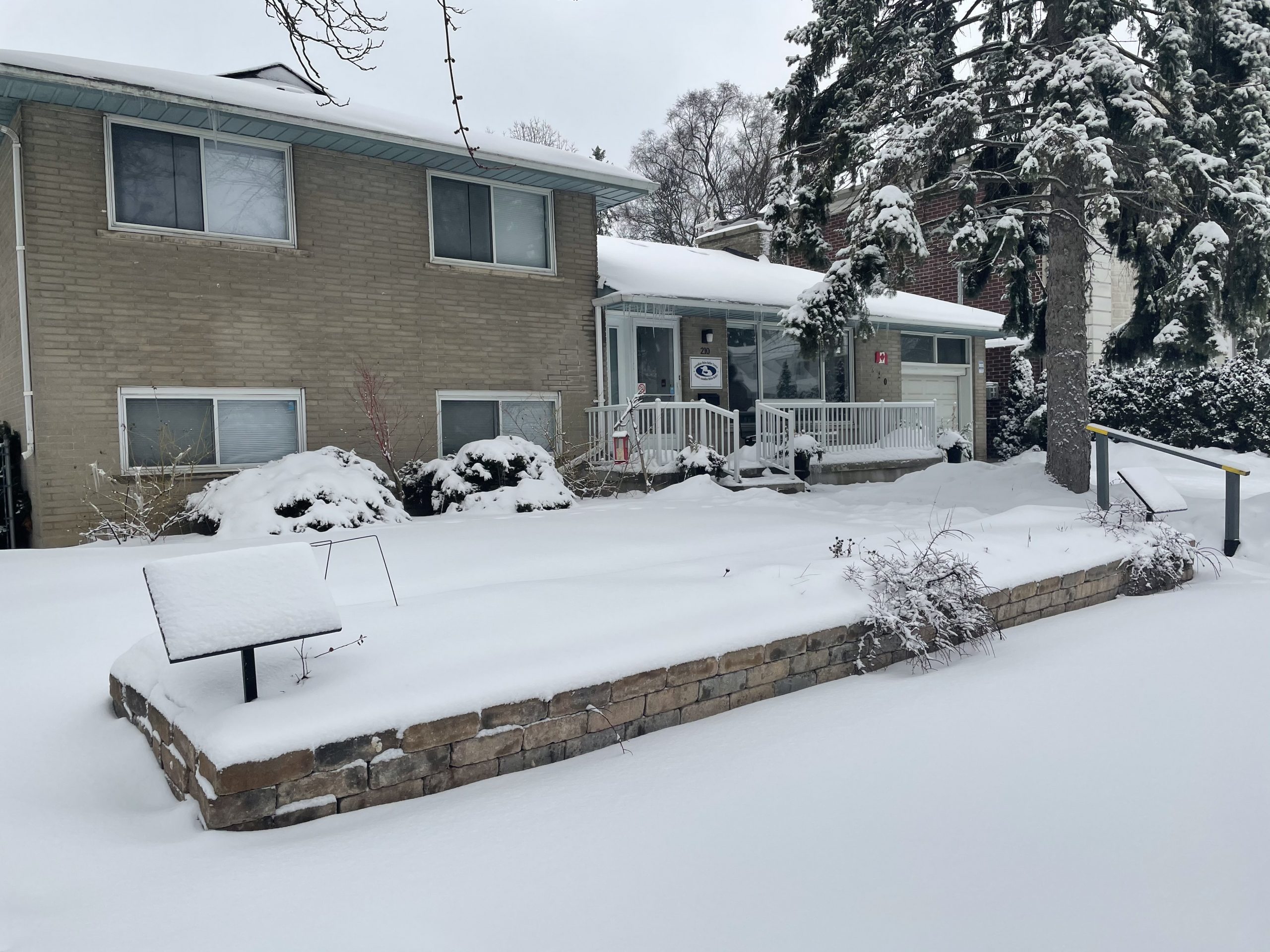“Be the change,” says Black CHKC intervenor Lisa Marie
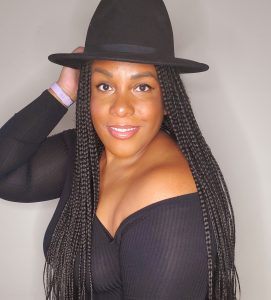 Lisa Marie Walsh believes that she is a role model for up and coming BIPOC intervenors. However, she admits that diversity is not represented in the profession as much as it could be both inside and outside of Canadian Helen Keller Centre (CHKC).
Lisa Marie Walsh believes that she is a role model for up and coming BIPOC intervenors. However, she admits that diversity is not represented in the profession as much as it could be both inside and outside of Canadian Helen Keller Centre (CHKC).
“I do not know why,” she admits. “I remember my days in the Intervenor Program at George Brown College (GBC) and my own class lacked diversity. I think we need to find a way to reach diverse communities when doing school fairs, for example. If we have diverse intervenors in various agencies as well in management then this could help. We need more diversity!”
Saying that, Lisa Marie enjoys camaraderie between herself and Black consumers. “Consumers that I have worked with who are Black, feel more comfortable discussing certain issues with me as it feels more relatable. Even something as small as going to a Black hair store and knowing the products and talking about our hair texture can make someone feel more comfortable.”
For Lisa Marie being an intervenor means making herself available to consumers as much as possible.
Her path to becoming an intervenor began when she volunteered in the seniors program at The Bob Rumball Canadian Centre of Excellence for the Deaf (BRCD). She was acquiring more exposure to the deaf community while taking classes at the Canadian Hearing Society (CHS).
She adds, “There were some placement students from the GBC program who were using two-hand manual. I was intrigued and asked them about it. They explained what an intervenor is and I became more interested.”
Lisa Marie continues, “It seemed like a meaningful and rewarding career. Since then I have learned to use different communication methods. My job is to ensure that consumers are as independent as possible. Seeing the impact motivates me to strive to be better everyday.”
Her advice for BIPOC community members is to “Be yourself. Stand up for what you believe in.” She adds, “Because this field is so small, and people are working in different settings all over the city, Black intervenors don’t cross paths a lot. We don’t really have a sense of how many of us there are.”
This past summer brought many challenges for the BIPOC community. Black Lives Matter (BLM) took to the streets across the globe to demand more visibility and respect. Lisa Marie had to think hard about her work environment. Was CHKC an inclusive place? Did she feel supported?
She thinks hard before answering. “I had to really dig deep, read between the lines and ask myself if they were true allies. I can honestly say they are. Of course, we are all learning. I am learning. For me CHKC, is not only ‘talking the talk’ but taking the necessary steps to also ‘walk the walk.’”
She continues, “I feel that each person has different lived experiences and some may have experienced more challenges than others. Personally, I have not had many challenges, and therefore have not been the biggest supporter of the BIPOC movement. I had to change my way of thinking and develop the attitude that just because it may not have happened to me, it doesn’t mean there isn’t a problem.”
As Lisa Marie continues to learn, she has also accepted that microaggressions exist. “For example, two years ago I was working with a Black consumer in the community and a new staff member asked me if I was the consumer’s sister. I was also wearing my ID badge. We laughed, however, as I’ve since learned, that’s an example of a microaggression.”
Incidences like this has made Lisa Marie more aware of the importance of Black advocacy.
February is Black History Month. During this time, Lisa Marie believes that Canadians get “To learn about influential Black people and what they have accomplished. While touching on the highs, it also means acknowledging the lows and the challenges that Black people have faced and still face today, maybe not as openly. Growing up, my parents never shared this knowledge with me so the information I learned was once a year in school and it was just the bare minimum.”
That is why Lisa Marie believes Black History Month is more important than ever. “Many people thought that racism no longer existed and we were progressing. The events that happened last year is a clear indication that it has not changed; it just wasn’t filmed.”
As she continues to research anti-black racism in Canada and across the world Lisa Marie believes now more than ever that, “It is time for change.”



